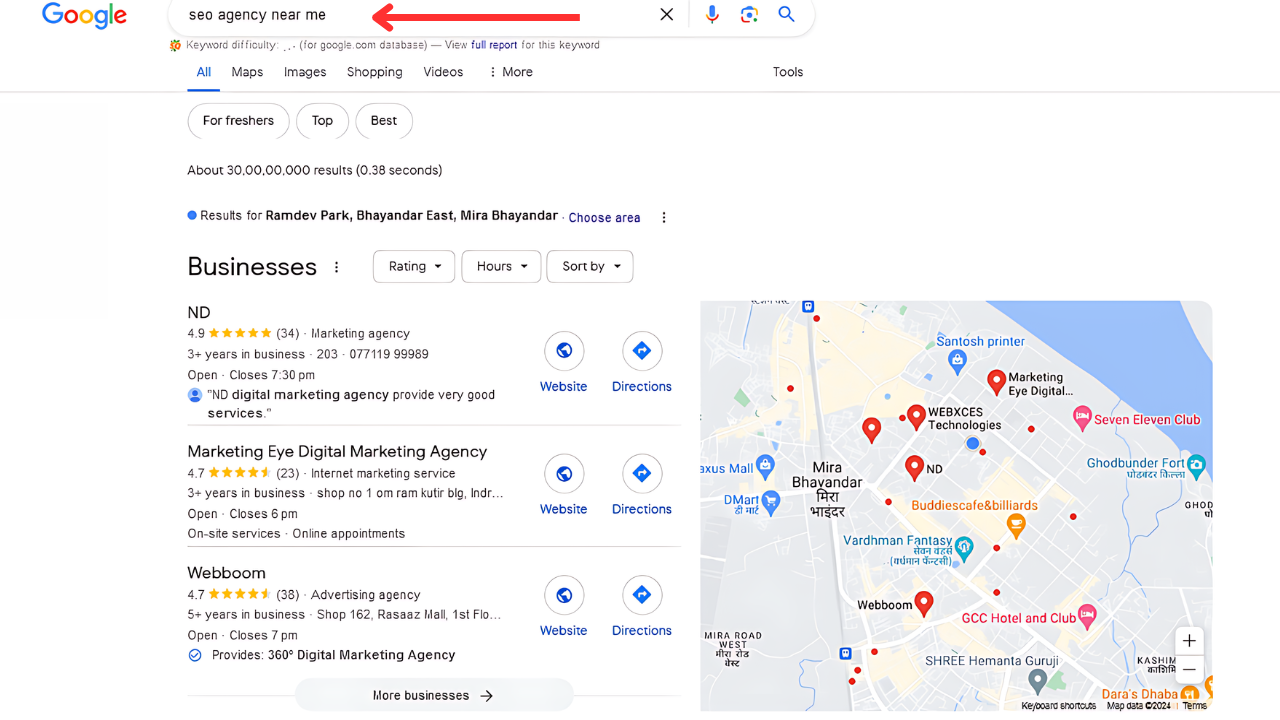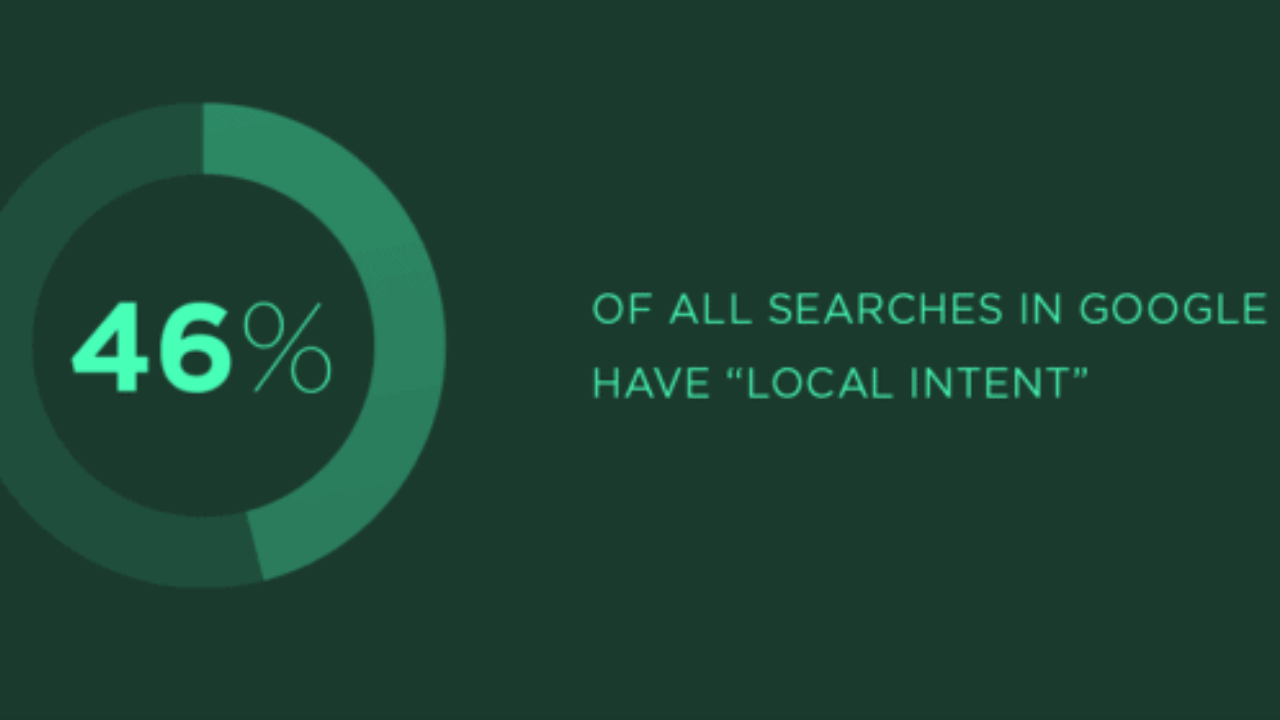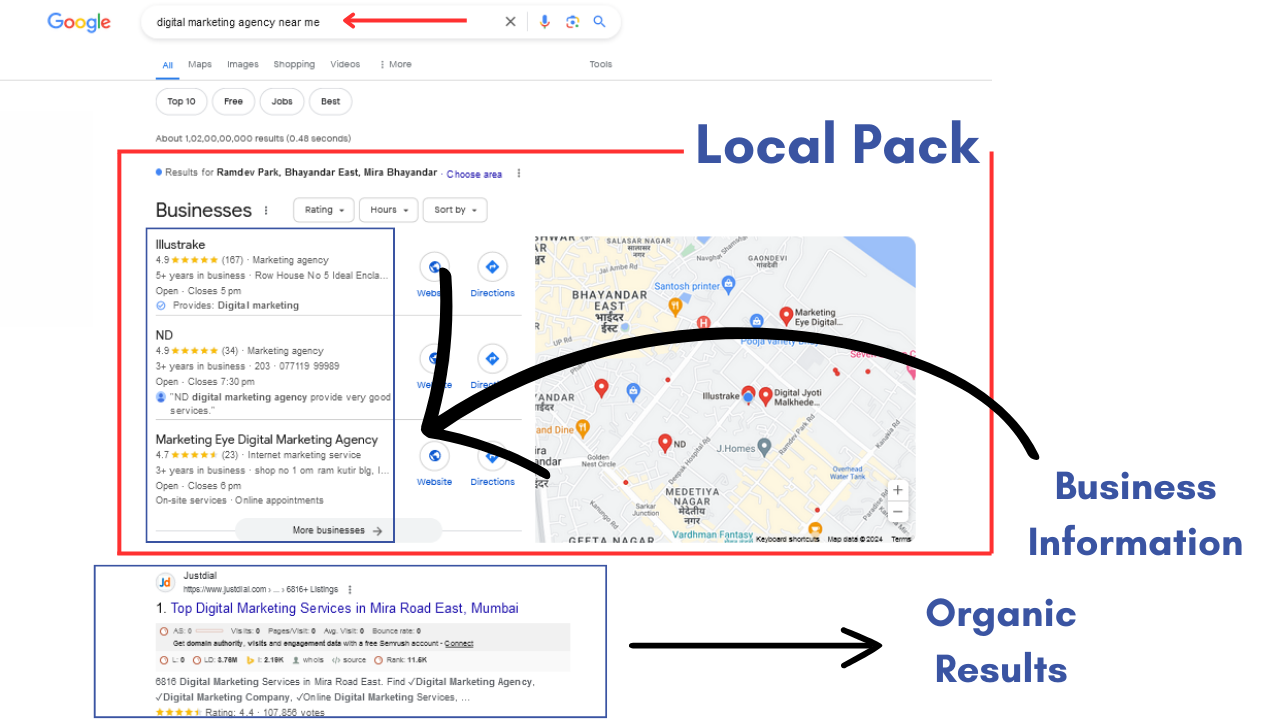What do you understand by the term Local SEO?
Local SEO stands for "Local Search Engine Optimization." It's a strategy used to improve your visibility in online search results when people search for products or services near them. It helps your business show up in local searches on search engines like Google or Bing. So, if someone nearby is looking for a restaurant, a plumber, or a dentist, local SEO helps your business appear in those search results, making it easier for potential customers to find you.
- Ensuring consistency in NAP (Name, Address, Phone Number) across online platforms
- Optimizing your Google Business Profile
- Finding local keywords
- Creating locally relevant content
This is an example of a local search result on Google:

Your company may show up in Google search results for similar queries with the use of local SEO. The importance of local SEO, the way it works, and how it is done are all covered in this article.
Why Is Local SEO Important for your business?
Local SEO, or Search Engine Optimization, is a focused strategy that aims to increase the visibility of your company in search results, concentrating on local clients. It's more crucial than ever to make sure your company stands out from the competition because the majority of customers look for local services online.
Visualize your company ranking well in search results, drawing in a constant flow of clients who are specifically looking for what you offer. You may increase foot traffic and establish a solid reputation in your region by utilizing local SEO, which will create lasting connections and loyal clients.
46% of all searches in Google have “local intent”

29% of all Google SERPs contain a local pack in the results

76% of customers who use their phones to look up local products make a retail visit that day. So it's evident that a significant amount of the SEO industry consists of local searches. Additionally, there's a strong possibility that people may visit your storefront a short while after if you can position your neighborhood business high up on these searches.

